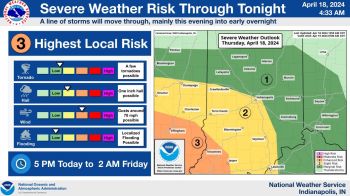(BSIP/Getty Images)
46 years after the U.S. Supreme Court’s landmark ruling in Roe V. Wade, abortion remains one of the most controversial and emotionally charged issues in American politics. It’s also one of the most complicated.
Since taking office in early 2017, President Donald Trump has seated 104 judges on the district and circuit courts and won confirmation battles for two Supreme Court justices. Trump’s track record and the potential for the appointment of another Supreme Court justice before he leaves office has left progressives increasingly fearful that Roe V. Wade will inevitably be overturned.
Concern about abortion rights on the federal level has prompted a few state governments to take action on their own, putting forth legislation that is generally biased to the issue depending upon the prevailing views of the dominant political party in each state. New York and Virginia pushed to expand abortion rights, while Alabama, Georgia, Kentucky, Missouri, Mississippi and Ohio bills sought to restrict them.
Meanwhile, Americans remain locked in a familiar, yet increasingly contentious debate concerning the rights of the unborn versus the rights of a woman to control her own body. When the debate has run its course, the majority of participants will remain ever more firmly ensconced in their position. Hearts and minds are rarely changed in matters of abortion on demand, but it does happen.
Norma McCorvey, aka “Jane Roe” is one of the more notable persons to alter her views on abortion. McCorvey was the darling of abortion rights proponents for more than 35 years before converting to Christianity, renouncing her own homosexuality, and becoming an outspoken activist in the pro-life movement.
McCorvey deeply regretted her role in the landmark case that effectively legalized abortion on the federal level. In 1998, McCorvey testified to Congress:
It was my pseudonym, Jane Roe, which had been used to create the “right” to abortion out of legal thin air. But Sarah Weddington and Linda Coffee never told me that what I was signing would allow women to come up to me 15, 20 years later and say, “Thank you for allowing me to have my five or six abortions. Without you, it wouldn’t have been possible.” Sarah never mentioned women using abortions as a form of birth control. We talked about truly desperate and needy women, not women already wearing maternity clothes.”
Contrary to popular belief, Norma McCorvey never had an abortion. By the time the Supreme Court issued its decision in 1973, McCorvey had already given birth to a little girl who was adopted by a family in Texas. it is unknown whether the family ever knew that their daughter was the supposedly ‘unwanted’ child who was the subject of Roe V. Wade.
It is telling that today, many of the most outspoken figures in the pro-choice movement know little, if anything, about Norma McCorvey beyond her role in the legalization of abortion. Her conversion to Christianity in the late 1990s and subsequent activism in the pro-life movement dealt a massive blow to abortion rights activists at the time. Today, however, that chapter in McCorvey’s life is frequently glossed over or ignored entirely by those who support abortion, or so-called “reproductive healthcare rights” as it has recently been so tastefully sanitized.
In June of 2003, McCorvey filed a motion with the U.S. District Court in Dallas to have Roe V. Wade overturned and asked the court to consider new evidence that abortion hurts women. Included in her petition to the court were 1,000 affidavits from women who stated that they regret their abortions.
Outspoken celebrities, liberal politicians, and organizations such as Planned Parenthood purport to be a voice for women’s rights, pushing for expanded funding and access to abortion services. But what of the women who chose in a time of emotional confusion, fear, and worldly pressure to terminate a pregnancy and now bear the burden of regret? Who speaks for them?
At a time when the issue of mental health is layered into the arguments for so many political and social issues, it is telling that these women who suffer are generally overlooked. Perhaps their relative silence fuels an assumption by society that their numbers are few, and therefore, insignificant. I respectfully disagree. The #MeToo movement has forced us to confront the tragic reality that far too many who bear the burden of shame will often suffer in silence for decades.
Despite being shunned by the pro-choice movement, shamed by the pro-life movement, and largely ignored by the mainstream media, there are those who courageously choose to share their stories publicly. Abort73.com features several hundred of these women’s stories, and the majority of them are nothing less than gut-wrenching.
Planned Parenthood, the most prominent and powerful voice in the pro-choice movement, conducted a total of 332,757 abortions for the fiscal year that ended June 30, 2018. Data on the number of patients who received follow up counseling for issues related to mental and emotional health, however, is not readily available. The terms “depression,” “behavioral health,” or “mental health” do not even appear on Planned Parenthood’s annual report.
The issue of abortion on demand is undoubtedly multilayered in its complexity, but pro-choice proponents are self-deceptive and negligent in their supposed advocacy for “all women.”
In reality, those who regret their abortions are ignored, systematically silenced and portrayed as a minority. They too deserve the support and compassion of the increasingly militant pro-choice movement, but to acknowledge their grief would invalidate the progressive’s narrative that abortion is a moral and compassionate choice in a decent society. It’s a lie, and one of the most grotesque aspects of the deception is that it invariably harms thousands of women. How tragically ironic.
Follow Brian Baker on Twitter: @naptownbri












